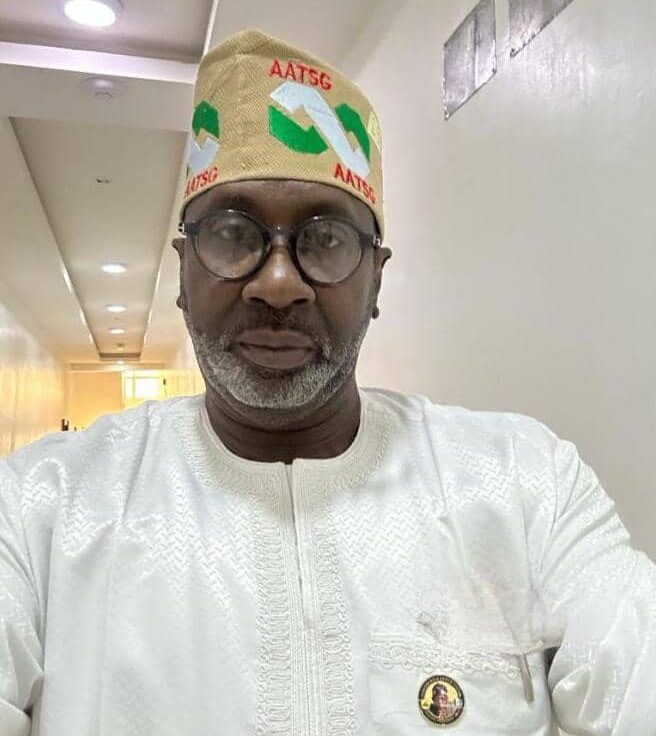Plundering of N28 trillion Ways and means responsible for Naira Collapse. – Abayomi Odunowo.
The act of a president printing N23 trillion in cash within an 8-year period without it being tied to any project of value is a gross mismanagement of the country’s financial resources. This action undermines the stability and value of the national currency and poses a significant threat to the economy. It is clear that such a massive influx of currency into the system will inevitably lead to inflation and a devaluation of the national currency.
Moreover, the fact that a significant portion of these funds was subsequently siphoned out of the country in dollars by corrupt government officials and their allies further exacerbates the situation. This capital flight not only weakens the strength of the Naira but also undermines the country’s ability to invest in critical infrastructure and development projects.
The looting and subsequent “purchase” of USD by these corrupt individuals directly contribute to the crash of the Naira and the inflationary pressures in the economy. The impact of such actions ripples through the entire economy, affecting the livelihoods of ordinary citizens and hampering the ability of businesses to operate effectively.
It is crucial for government officials to exercise prudence and accountability in managing the country’s finances. Proper oversight and regulation are essential to prevent such abuses and to protect the value of the national currency. Additionally, measures should be put in place to repatriate looted funds and hold those responsible for these actions accountable. Without these efforts, the stability and strength of the national currency will continue to be at risk.
The fluctuation of the exchange rate in Nigeria has been a cause for concern for many, as it directly impacts the cost of goods and services in the country. The recent improvement in the exchange rate, with the market closing at $1 to N1450 as opposed to last week’s $1 to N1550, is a positive development. However, it is essential to recognize that interventions alone will not address the root causes of the currency disparity and scarcity of dollars in the market.
To effectively tackle this issue, it is crucial to focus on the physical aspects of the market. The deregulation of the downstream petroleum products is a commendable decision, along with initiatives to bridge the gap between bank rates and black market rates. Despite these measures, the Nigerian populace continues to grapple with the adverse effects of inflation, making the cost of living increasingly burdensome.
To truly address these challenges, a thorough examination of the historical and systemic factors contributing to the currency inequity and economic instability is imperative. By understanding the root causes, the appropriate long-term solutions can be implemented to stabilize the exchange rate and alleviate the financial hardships faced by Nigerians. It is crucial for policymakers to adopt a comprehensive approach that addresses the underlying issues at play in the Nigerian economy.
When President Buhari assumed office in 2015, he inherited a foreign reserve of $28 billion from the previous administration of Goodluck Jonathan. However, during his tenure from 2015 to 2023, the total import into Nigeria amounted to $451 billion, while the total export receipts were approximately $406 billion. Despite these figures, Buhari’s government reportedly borrowed over $32 billion, resulting in a significant increase in Nigeria’s external debt from $10 billion to $43 billion.
Additionally, foreign direct remittances during this period totaled $168 billion. When analyzing the net dollar inflow to outflow, it becomes evident that the significant depreciation of the Naira cannot be solely attributed to these financial transactions. This raises concerns about the financial management and decisions made by the previous administration, particularly the APC government.
As President Buhari handed over the reins to the incoming government of Bola Ahmed Tinubu, the country faced a challenging external debt position. The substantial increase in external debt and the concerning gap between imports and exports point to financial recklessness that has contributed to the current economic challenges. It is imperative for the incoming government to address these financial issues and implement measures to safeguard the country’s economic stability.
In recent times, there has been a lot of discussion and controversy surrounding the alleged printing of N23 trillion Naira by the Central Bank of Nigeria (CBN) and its handover to President Buhari. What is interesting here is that we, as Nigerians, are not asking the right questions about this significant sum of money. Instead of focusing on the potential implications and consequences of such an action, the public discourse has largely been centered around political blame games and finger-pointing.
The real issue at hand is what happened to the N23 trillion Naira that was printed and handed over to the President. With such a substantial amount of money in the mix, it is crucial for the Nigerian people to demand transparency and accountability from the government. The lack of information and clarity surrounding the utilization of these funds is disconcerting and should be a cause for concern for all citizens.
It is imperative for us to seek answers to pertinent questions such as where this money has been allocated, how it is being managed, and what impact it will have on the nation’s economy and financial stability. As responsible and informed citizens, it is our duty to hold our leaders accountable and demand transparency in matters of national importance. Only through asking the right questions and demanding answers can we ensure that the best interests of our country and its people are being served.
In hindsight, the prescient warning from Obaseki about the consequences of printing Naira and handing it over to Buhari without tying it to specific projects is a stark reminder of the state of our economy today. Despite his cautionary words, it seems that nobody listened, and here we are facing the repercussions of unchecked fiscal policies.
It is true that the new leadership at the Central Bank of Nigeria is making efforts to address the economic challenges, but it is also evident that interventions alone cannot provide a lasting solution. Between 2018 and 2023, there was widespread looting of our common wealth, as individuals and their relatives shamelessly enriched themselves at the expense of the nation. The consequences of this reckless abandon have reverberated throughout our economy, contributing to the dire financial situation we find ourselves in today.
The urgent task at hand is to hold those responsible for this plunder to account and recover the stolen funds. It is imperative that every effort is made to ensure that the perpetrators, as well as their beneficiaries, are made to refund the ill-gotten gains. This is a necessary step towards rebuilding our economic stability and ensuring that such a brazen disregard for the nation’s resources does not go unpunished.
It is imperative that we heed the warnings of individuals like Obaseki in the future and take proactive measures to safeguard our economy. The lessons of our past should serve as a guide for the actions we take today to ensure a more sustainable and prosperous future for Nigeria.
President Obasanjo inherited a staggering economy burdened with debt, but through his leadership and anti-corruption efforts, he was able to turn it around and pay off all our debts. One of the key strategies he employed was going after the looters who had siphoned off over $100 billion from our economy and stashed it overseas. By tackling the root of the problem, Obasanjo was able to restore stability and confidence in the economy.
During his tenure, the Naira remained strong, losing only N32 to a dollar when he left office. However, subsequent administrations have struggled to maintain this stability, with the Naira now losing about N78 to a dollar. This decline has been exacerbated by a lack of liquidity in the economy, preventing effective currency interventions.
Furthermore, the output of our crude oil, a major source of revenue for the country, declined under the Buhari administration and has yet to recover. The Nigeria National Petroleum Corporation (NNPC) reported staggering losses of $1.9 billion monthly due to theft and inefficiency, amounting to $22 billion annually.
President Obasanjo’s success in stabilizing the economy and paying off debts was due to his relentless pursuit of the looters and his focus on rooting out corruption. However, subsequent administrations have struggled to maintain this progress, leading to a decline in the value of the Naira and significant losses in the oil sector. It is clear that addressing corruption and inefficiency is crucial to restoring economic stability and growth in Nigeria.
Otunba Abdulfalil Abayomi Odunowo
National Chairman AATSG
7th February, 2024.
Do you have any information or event for JNEWS to publish or cover? Kindly Call us on +2349053535322 or send us message on Whatsapp number +2349053535322 or send us an email here



